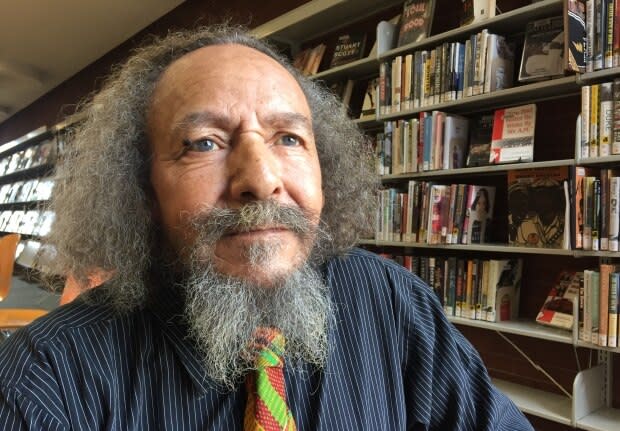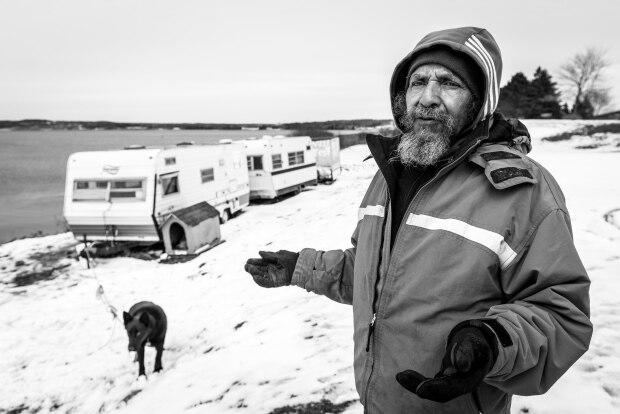After 5 decades, Eddie Carvery says his Africville protest is 'back at square one'
Eddie Carvery defied eviction orders over the course of 50 years to force him from his birthplace.
Now the trailers and hand-painted sign, symbols of his fight for reparations for the destruction of Africville, have vanished.
Carvery, 73, has agreed to end his stubborn protest because he's now also fighting a second battle against age, illness and poverty.
"I don't think I've got that much gas left in the tank, but I'm still willing to go the nine yards," he said.
Carvery's on-again and off-again occupation at Africville, located on the Bedford Basin shore in Halifax, started in 1970 when he was 24.
That was the year the final home in Africville was bulldozed by the city, following years of the same thing happening to the other houses and the church that formed the tight-knit black community.
Africville was home to some 400 residents from 80 families who took pride in their school, post office, dance hall and church.

After the destruction of his community, Carvery was so angry he "wanted to blow up city hall."
However, following his mother's advice to keep his demonstration peaceful, he started one of Canada's longest civil rights protests by returning to the land where he was born, and lived in a trailer. For a while, he was accompanied by his brother, Victor, and at times, his cousin, Nelson.
Throughout the years, Carvery kept up his crusade despite municipal attempts to quash it.
In 2010, former Africville residents and their descendents received an apology and $3 million from the city, one hectare of land and a replica church, which is now a national historic site.
But there was no offer of individual compensation, which Carvery had demanded along with a public inquiry. He rejected the settlement and refused to leave.
However, after several heart attacks and a bout of cancer in recent years, Carvery scaled back his presence at the trailers to every second day.
He also verbally agreed with the Africville Heritage Trust, the non-profit group operating a museum in the replica church, to have most of his protest camp demolished.

Of his four trailers, Carvery said the three "eyesores" could go, but the smaller one with his personal effects was to remain.
"I developed a relationship with my trailers and my animals. That's all I had," he said with tears welling up.
Several months ago, the heavy machinery was back, destroying his last stand. He arrived to find a backhoe and a crumpled heap of debris. He said the fourth trailer was in the rubble.
"It hurt more than anything," Carvery said.

He said the Africville Heritage Trust offered to recognize his protest at the museum, but he said that's not enough to ease his pain.
The executive director of the non-profit organization declined to comment on this story.
No longer the 'fierce lion'
Lindell Smith, the city councillor for Halifax Peninsula North, the area that includes Africville, ran into Carvery recently. He wasn't the "fierce lion" Smith was accustomed to seeing.
"[He was] somebody who was just sad at the fact that, you know, all the work in the activism that he's done was kind of just gone with a swipe," Smith said.

He called Carvery the "most significant activist" to emerge from Africville. While others assumed an educational or advocacy role, Carvery was the visible agitator whose protest camp prompted people to ask questions.
Now, it's gone.
"There's no other Eddie Carvery, there was no other protest," Smith said.
Carvery hopes to resume his campaign for redress, but he needs a solid, comfortable trailer, which he can't afford.
"Now, I'm back at square one, again," Carvery said.
MORE TOP STORIES


